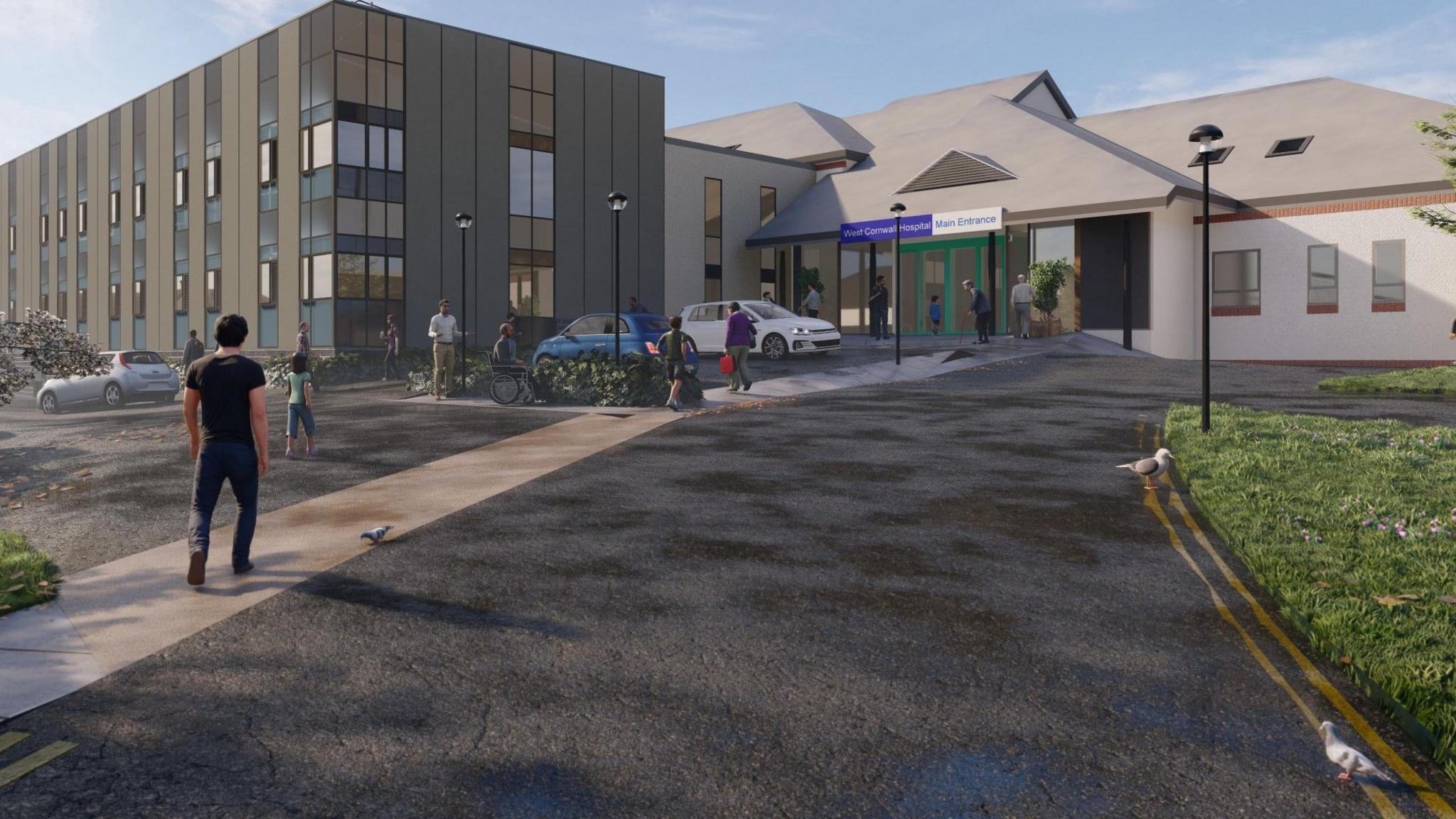New stroke unit set to welcome patients
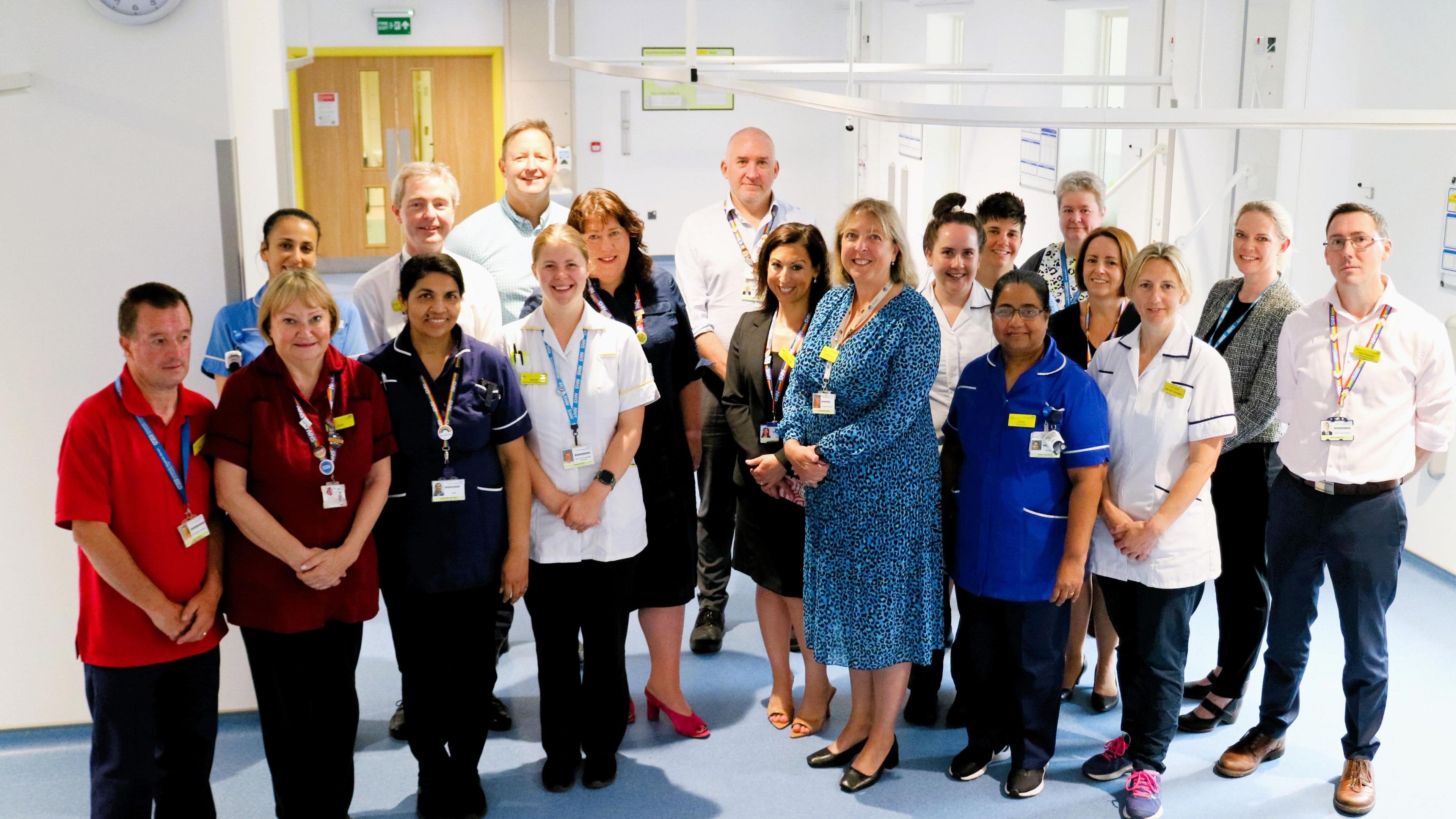
Staff at the new stroke unit said they are "excited" and "enthusiastic" about the new development
- Published
A newly enhanced stroke unit is due to welcome its first patients.
The University Hospital Dorset (UHD) has had a 20 per cent increase in capacity, which brings the total number of beds to 43.
The new unit at the Royal Bournemouth Hospital has state-of-the-art facilities, improved patient amenities and expanded office space.
Consultant stroke physician and UHD’s clinical lead for stroke Dr Suzanne Ragab said: “This development marks a significant advancement in the care we can offer stroke patients."
The £1m improvement is part of a wider regional healthcare plan which includes establishing the Royal Bournemouth Hospital as the major emergency hospital, and Poole Hospital as the planned care hospital by 2026.
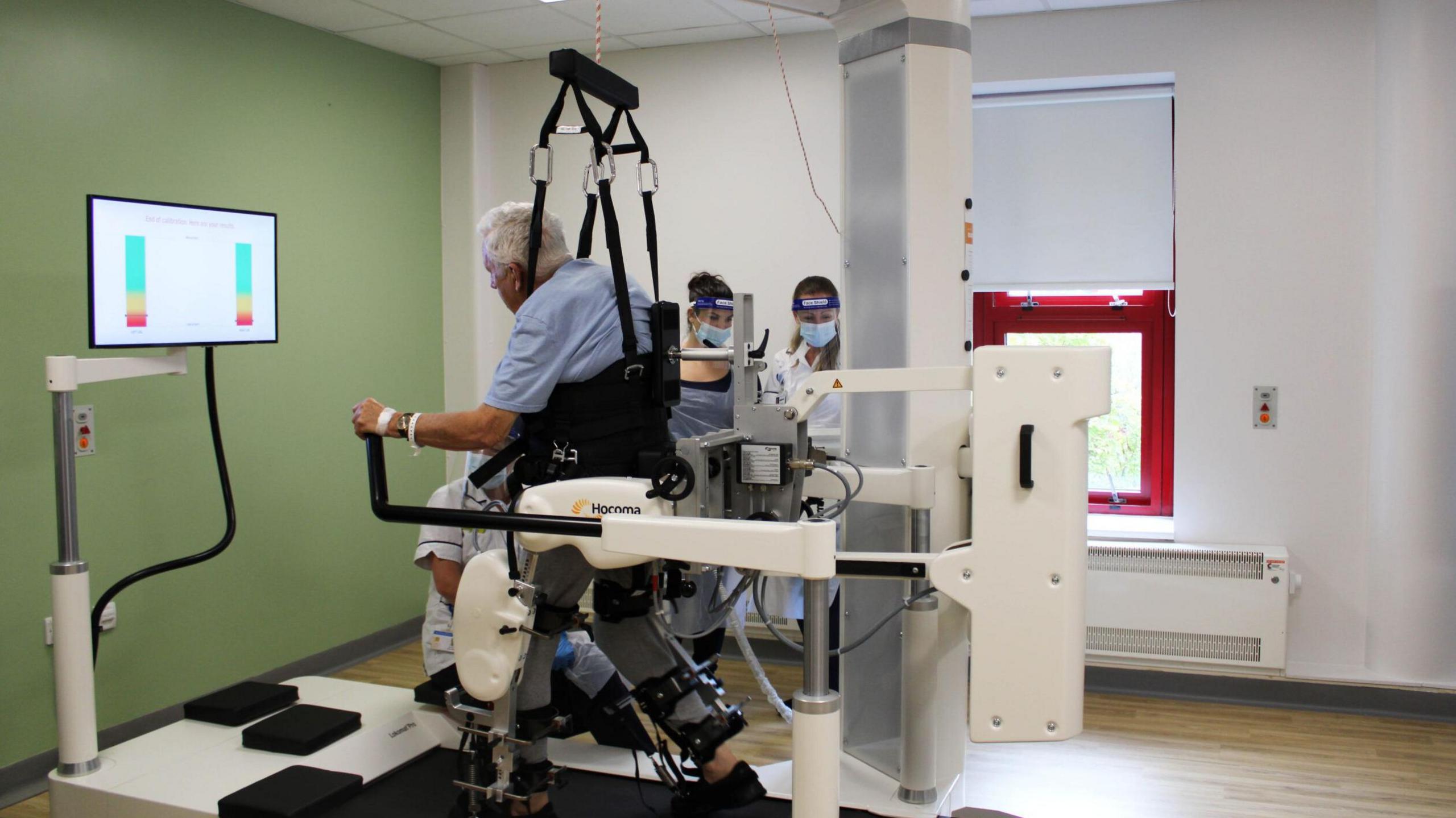
Walkerbot technology will help stroke patients as they relearn to walk.
The hospital says the unit will consolidate the stroke services team into one location which means better flexibility and resilience among staff and streamlines patient care.
It aims to minimise mid-treatment hospital transfers and reduce the length of hospital stays.
The hospital has also introduced a £365,000 walking robotics device called Walkerbot, which will be used to help stroke patients as they relearn to walk.
Ms Ragab said: "Having the stroke service consolidated on one site is already enhancing patient care, particularly in reducing the average length of stay for our patients.
She explained that combining services in one location allows for more efficient patient pathways and access to our innovative Walkerbot technology.
She said: “We have already observed notable improvements, with recent data showing a significant reduction in treatment times since the consolidation.
“For instance, patients from the Poole and Purbeck areas are now receiving life-saving treatment in about one-third of the time it took before these changes.”
Follow BBC South on Facebook, external, X (Twitter), external, or Instagram, external. Send your story ideas to south.newsonline@bbc.co.uk, external or via WhatsApp on 0808 100 2240, external.
Related topics
More from the BBC
- Published7 June 2024
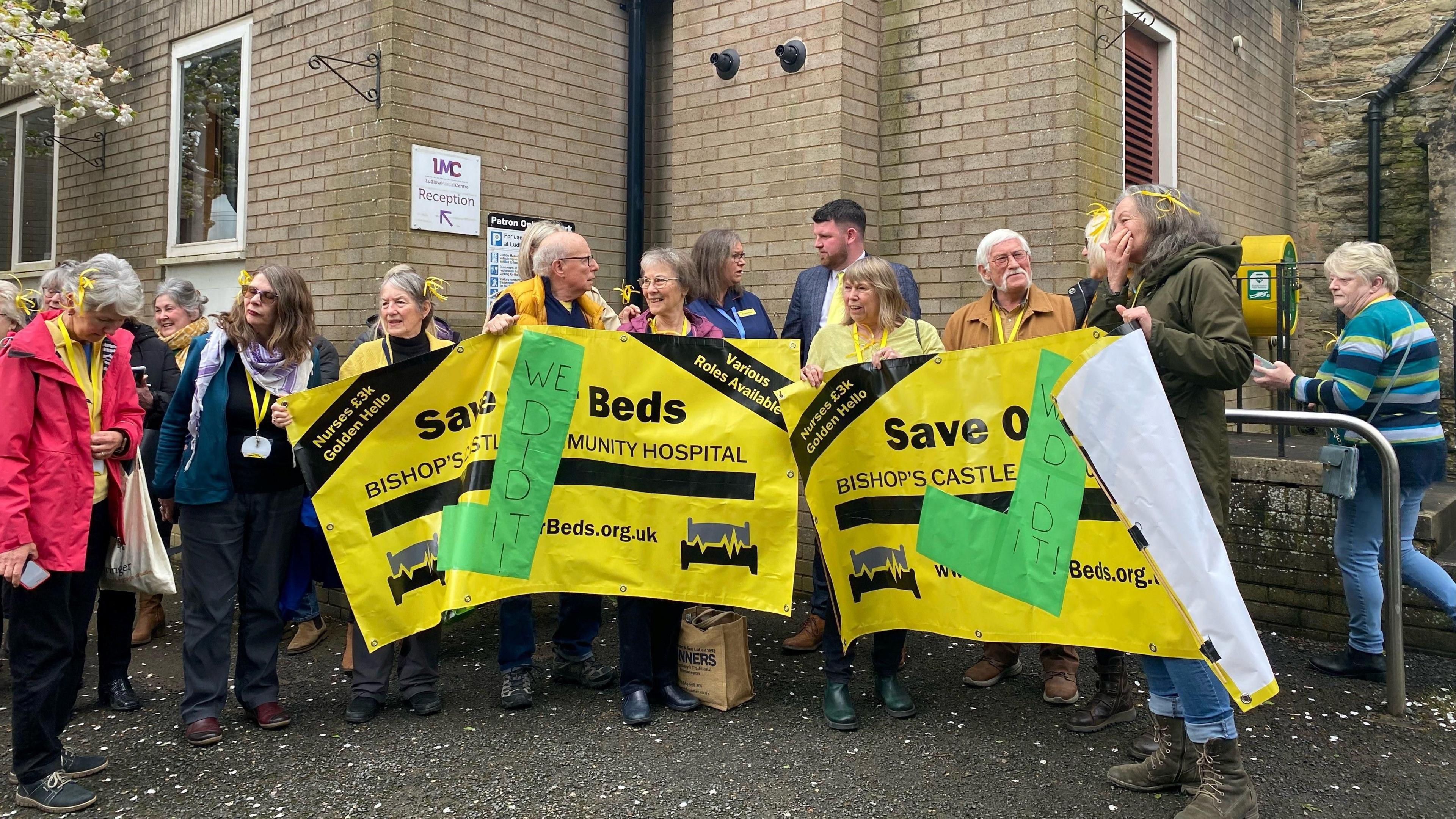
- Published18 April 2024
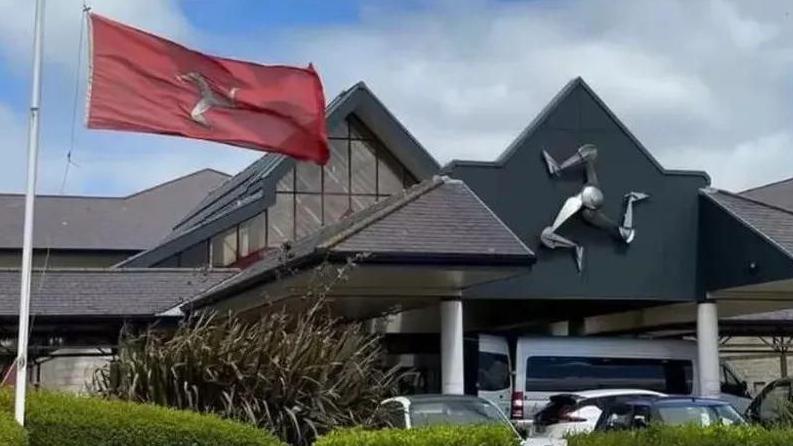
- Published26 February 2024
